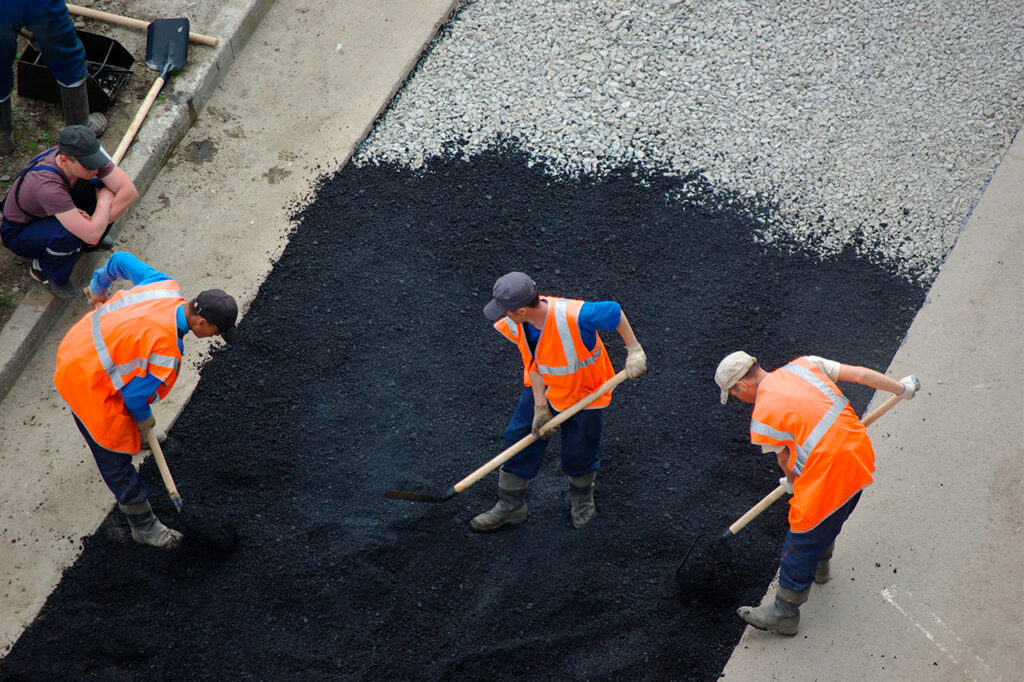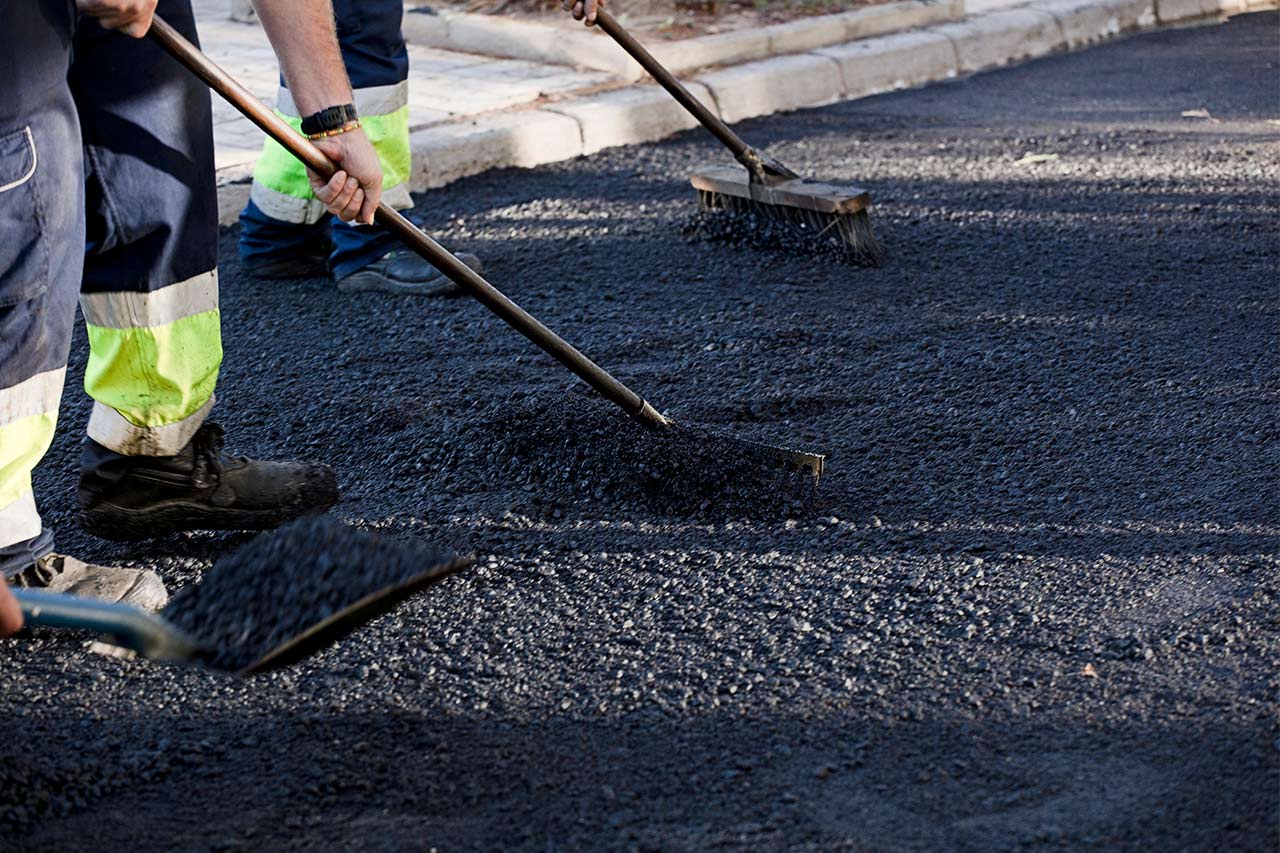When paving your property, your chosen material is as crucial as the company you hire to install it. Both asphalt and concrete are popular choices, each with unique benefits and considerations. Understanding these can help you make an informed decision that suits your requirements. Here’s a breakdown of asphalt versus concrete, covering durability, maintenance, cost, and aesthetics.
Durability and Lifespan
Asphalt:
Typically, it lasts 15 to 20 years with proper maintenance, including regular seal coating and crack filling.
Asphalt is known for its resilience and flexibility, which makes it ideal for colder climates with freeze-thaw cycles. It can expand and contract without cracking.
Conctete:
Concrete is highly durable and can last 30 to 40 years with minimal maintenance.
It resists weathering, chemicals, and UV radiation better than asphalt and is a good choice for hotter climates as it does not soften.
Maintenance and Upkeep
Asphalt:
- It requires more frequent maintenance than concrete, including seal coating every 2 to 3 years and occasional crack filling to prevent water penetration and damage.
- Easier and less expensive to repair than concrete, as patches blend more seamlessly with the original surface.
Concrete:
Stains from oil and other fluids are more visible on concrete, requiring more effort to keep clean.
It needs less routine maintenance, but repairs can be costly and noticeable due to difficulty matching the original material.
Installation Cost and Time
Asphalt:
- Generally cheaper than concrete in terms of initial installation.
- It can be installed and ready for use in a few days, which might be crucial for quick turnaround projects.
Concrete:
- It is initially more expensive due to material costs and longer labor hours.
- It takes longer to cure before it can be used, typically a week or more.
Aesthetic and Customization
Asphalt:
- It offers a smooth, continuous surface that delivers a classic black finish.
- Limited customization options in terms of color and texture.
Concrete:
- It can be colored and textured to match existing landscaping or architectural style.
- Options like stamped concrete or tinted sealers enhance visual appeal and uniqueness.
Environmental Considerations
Asphalt:
- Asphalt is recyclable, and most of the material used in asphalt roads today is already recycled.
- A darker surface increases heat absorption, which might contribute to urban heat islands.
Concrete:
- Concrete reflects more sunlight, reducing the heat island effect.
- While not as recyclable as asphalt, it offers a longer lifespan, which means less frequent replacement.
Conclusion
Choosing between asphalt and concrete depends mainly on your project needs, budget, climate, and aesthetic preferences. Concrete might be the way to go if you value durability with less frequent upkeep. However, asphalt could be the better choice if you’re looking for cost-effectiveness with easier repair options.
We specialize in asphalt and concrete paving solutions at Garcia’s Construction TN. Contact us today to discuss your project, and let our experts help you decide the best material for your paving needs.






